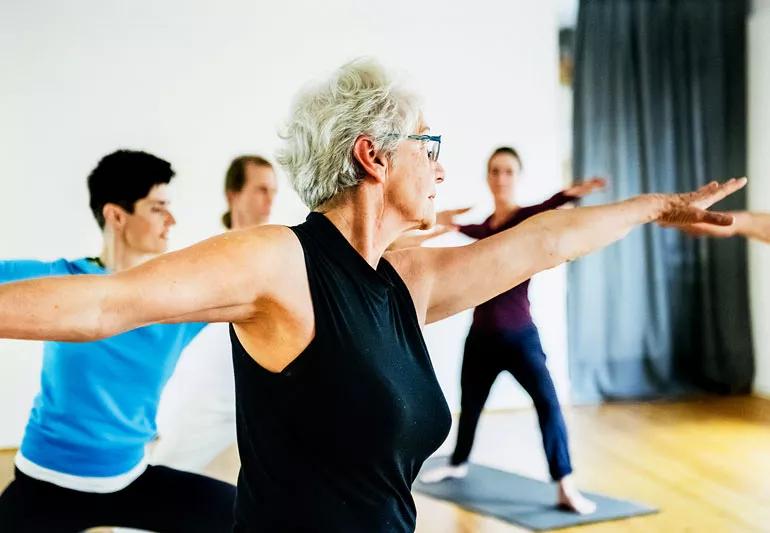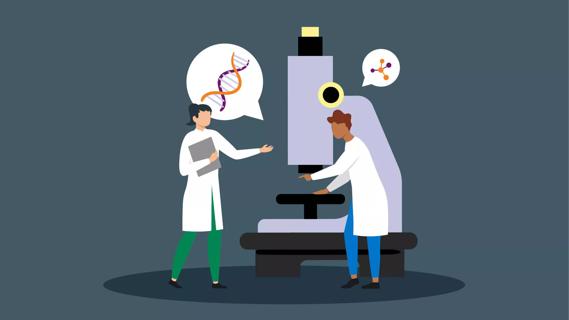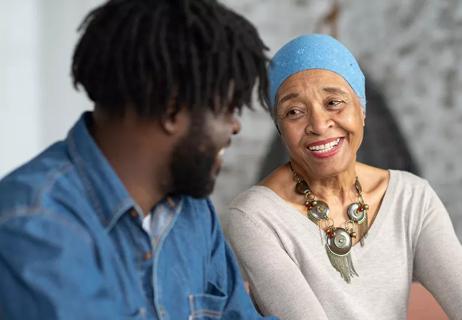There are often options, even at age 99

By Mikkael Sekeres, MD, MS
Advertisement
Cleveland Clinic is a non-profit academic medical center. Advertising on our site helps support our mission. We do not endorse non-Cleveland Clinic products or services. Policy
If you’re an older adult and your doctor tells you that you have leukemia, you may think (or may have even been told) the only thing you can do is to get your affairs in order. However, what many people don’t realize is that we can treat every person diagnosed with acute leukemia, no matter their age and medical condition.
Leukemia is often considered a childhood illness. Even though it is one of the most common childhood cancers, the blood disorder cancer actually affects far more adults.
According to the National Cancer Institute, leukemia is most frequently diagnosed among people between the ages of 65 and 74 years. The median age at diagnosis is 66. There are treatment options for patients of all ages, include chemotherapy and blood transfusions.
We often joke — though it is no joking matter — that leukemia needs a better press agent. The older patient is often pleasantly surprised to hear what we have to say about options for treating them. I have treated patients as old as 99.
A person in his 60s who undergoes intensive chemotherapy has a 55 to 60% chance of going into remission. This means that all signs and symptoms of cancer disappear, although the cancer may still be in the body.
Advertisement
There are risks with undergoing treatment, however, including infections and death. But those risks also exist without treatment: If a patient in his 70s declines treatment, life expectancy is three to four months, with a risk of infections and other complications. Life expectancy with treatment is longer.
Older adults diagnosed with leukemia should partner with oncologists who focuses on the disease. We have doctors and nurses — both inpatient and outpatient — who specialize in leukemia. We also have protocols in place for treating older adults with leukemia.
But I tell patients that this is really their decision, not mine. We talk about life goals. This is one of the most important discussions we have, to make sure that the recommended treatment meets your goals and expectations.
Advertisement

Sign up for our Health Essentials emails for expert guidance on nutrition, fitness, sleep, skin care and more.
Learn more about our editorial process.
Advertisement

Both leukemia and lymphoma are blood cancers — but one is found in your bone marrow, while the other is found in your lymph nodes

This cancer of the blood is rarely passed down, but genetics can help determine risk

7 tips to guide you through their treatment

Your tolerance decreases with age, thanks to body changes, health conditions and medications you may take

Exercising and stretching your lower back, hamstrings, hips and quads can greatly improve your physical well-being

Many chronic conditions can cause fatigue — but don’t overlook mental health concerns, iron level and hormones

Some osteoporosis medications help slow bone breakdown, while others help grow new bone — what’s best for you depends on your needs

Use a gentle, nonjudgmental tone, focus on prevention and reassure them that age-related memory issues can have a variety of causes

Even small moments of time outdoors can help reduce stress, boost mood and restore a sense of calm

A correct prescription helps your eyes see clearly — but as natural changes occur, you may need stronger or different eyeglasses

Both are medical emergencies, but they are very distinct events with different causes